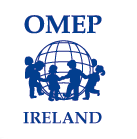Why is maths talk so important?
By Sandra O’Neill
In the past number of years, policy in Ireland has increasingly focused on supporting the development of early maths skills. The Literacy and Numeracy Strategy (DES, 2017a), STEM Education Policy (DES, 2017b) STEM implementation plan (DES, 2017c) and updated Early Years Education-focused Inspection criteria have positioned the development of maths skills as critical in ECEC. Focus on what many consider to be an academic subject is at odds with the socio-constructivist environments and play-based pedagogy typical in ECEC settings. However, the introduction of ‘maths talk’ in ECEC environments is a simple change that can have a huge benefit without the academic ‘push-down’ that is sometimes feared.
Maths talk can be defined as ‘children talking about mathematical thinking and engaging in reasoning, argumentation and justification (Dooley, Dunphy & Shiel, 2014, p.131). Ginsburg (2009) believes that this ability should be the prime focus of early maths education. The amount of educator ‘math talk’ is significantly related to the growth of pre-schoolers’ conventional mathematical knowledge, but quantity of maths-related talk that educators provide differs dramatically (Klibanoff, et al., 2006). Mathematics is made up of many complex and often abstract concepts. To begin to help children understand these ideas, they need to become familiar with the vocabulary of maths. Consider the extent of this for a second — children need to recognise the counting of numbers, the names and descriptions for shape, location names (on, in, beside, right, left, above, below) and measure concepts (more than, less than, big, bigger, biggest, tall, small, tiny, minute, long, short, high, low) and in time, the mathematical concepts associated with these words.
Children require lots of opportunities to hear this language in context and associate language with real objects and experiences. To provide support for children, look for opportunities and intentionally use maths vocabulary each day. For example, outdoor play may lead to; discussion about the ‘big spider having longer legs than the small spider’, counting the steps up to the slide or describing that the key for the shed is ‘in a small bowl on the shelf beside the door.’ The more educators talk about maths, the more their children develop mathematical knowledge (Clements & Sarama, 2014).
However, ‘maths talk’ is about more than simply using the vocabulary of maths. Of equal if not greater importance, is the ability to be able to express and explain oneself mathematically, as problem-solving and reasoning are at the heart of mathematics. ECEC environments provide experiences that enable children to develop and practice these skills every day. For example, when a group of children decide to build a den outdoors, this provides the group with the incentive to discuss their thinking (Where could it be built? What materials could be used? Who will be responsible for what jobs/actions and why? What order do the jobs need to be carried out?), consult with others (What ideas do others have? What are the strengths and weaknesses of each idea? How will we agree on a course of action?), problem-solve (how many blankets do we need to cover the frame? How do we attach materials together, reinforce joints, tie knots? How do we get blankets over the top of the monkey bars?) and posing solutions to difficulties they encounter in their play (we need more ties at the top of our den but we’re too small, who can we enlist to help?).
Children will need the support of knowledgeable adults to model language, encourage justification of thinking, outline reasoning, and refine these complex skills over time.
In addition, the educator also needs to provide interesting, open-ended materials and scenarios that will prompt children to take the lead and come up with ideas.
Educators can make small changes that will make a difference. Try to see the maths in everyday activities and routines; point out similarities and differences in the learning environment (objects that are bigger and smaller, red or blue), name attributes (colour, shape, texture), look for shapes in the environment and sing number songs and rhymes. Support for fundamental maths skills does not require drill and practice activities. Instead, use maths vocabulary, set up scenarios that encourage children to think aloud and problem-solve, model these skills and use language associated with maths whenever you can!
Author Bio
Sandra O’Neill is an Assistant Professor of Early Childhood Education in in DCU’s Institute of Education. Prior to taking on this role she worked for a number of voluntary and government organisations including the National Council for Curriculum and Assessment, An Cosán, Preparing for Life and Sophia Housing Association. Research interests include the use of technology as a pedagogical tool in EC settings, Early Childhood Mathematics and Children’s Rights.
References
Clements, D. & Sarama, J. (2014). Learning and teaching early math: the learning trajectories approach (2nd edition). New York: Routledge.
Department of Education and Skills [DES] (2017a). National Strategy: Literacy and Numeracy for Learning and Life 2011–2020, Interim Review: 2011–2016 and New Targets: 2017–2020. Dublin: DES.
Department of Education and Skills [DES] (2017b). STEM Education Policy Statement 2017–2026. Dublin: DES.
Department of Education and Skills [DES] (2017c). STEM Education Implementation Plan 2017–2019. Dublin: DES
Department of Education and Skills [DES] (2018). A Guide to Early Years Education Inspection (EYEI). Dublin: The Stationary Office.
Dooley, T., Dunphy, E. & Shiel, G. (2014). Mathematics in Early Childhood and Primary Education (3–8 years); Teaching and Learning. Research Report 18. Dublin. National Council for Curriculum and Assessment [NCCA].
Ginsburg, H. (2009). Early Maths Education and How to Do it. In Barbain, O. A. & Wasik, B. H. (eds.) Handbook of child development and early education (pp.403–428). New York: Gilford Press.
Klibanoff, R., Levine, S., Huttenlocher, J., Vasilyeva, M., & Hedges. L. (2006). Preschool Children’s Mathematical Knowledge: The Effect of Teacher “Math Talk”. Developmental Psychology. 42 (1), 59–69.
